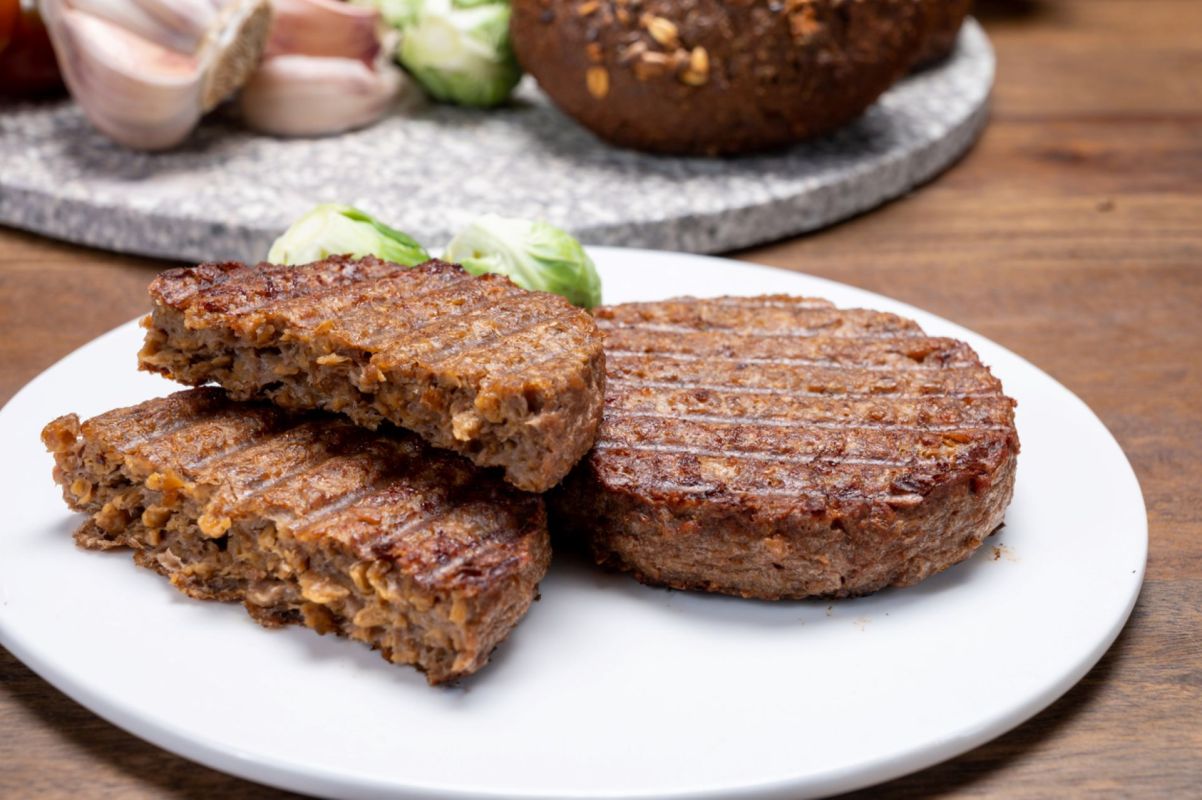It appears that plant-based meat isn't just for vegans and vegetarians anymore.
In an ironic shift in strategy, plant-based meat companies are planning to add a surprise ingredient to their products: animal fat.
Some of the companies are growing the fat in laboratories with hopes of combining it with other ingredients (think "extra porky" plant-based bacon). Others are taking animal byproducts from traditional meat production and blending them with plant ingredients, The Washington Post reported.
🗣️ Why do you eat plant-based foods?
🔘 The health benefits 🥗
🔘 It's cheaper 💰
🔘 It's good for the planet 🌎
🔘 I prefer the taste 😋
🗳️ Click your choice to see results and speak your mind
Though the market for plant-based meats looked promising in the late 2010s, unit sales dipped by 8% in 2022.
One of the barriers for plant-based meat is that it just doesn't taste enough like what it's trying to imitate. Meanwhile, consumers primarily make purchasing decisions based on cost and flavor.
"It's fundamentally difficult to make plants taste like meat," Saba Fazeli, co-founder of the startup Choppy, one of the companies incorporating fat into plant-based meat, told the Post. "I would say it's impossible."
Meat-eating accounts for about 15% of planet-warming pollution. Going vegan is one way to help reduce this impact, but finding plant-based substitutions can be challenging, and the percentage of people who call themselves vegans or vegetarians has stayed relatively steady at about 10% over the past two decades.
That's why some advocate instead for simply reducing meat consumption. In fact, supporters of the integration of animal fat into plant-based meat see it as a way to propel their products into the mainstream.
Aside from trying animal fat-infused plant-based products, consumers can also lower their meat consumption by following the "plant slant" diet, which has been tied to longer lifespans in the world's five Blue Zones. This eating style goes heavy on beans, whole grains, and veggies while going easy on — but not completely eliminating — meat.
For those who do want to shift to an animal-free diet, it's not impossible. One vegan fitness buff shared a list of the least expensive and most filling plant proteins, including lentils.
Either way, the massive land requirements of the meat industry coupled with its pollution problems beg for another solution to how we get our protein, according to experts.
"The way that we produce food is unsustainable," Faraz Harsini, senior scientist for cultivated meat at the Good Food Institute, told the Post. "There have to be alternatives."
Meanwhile, the new corporate strategy for plant-based meat caused quite a stir in the r/vegan subreddit, with varied opinions. One user took a middle-of-the-road approach, saying, "Small steps should be embraced not shunned and ridiculed."
Join our free newsletter for weekly updates on the coolest innovations improving our lives and saving our planet.









